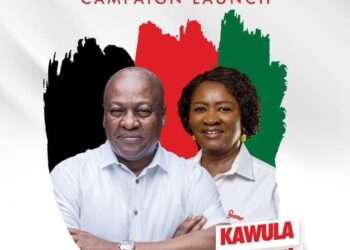In the vibrant sphere of Ghana’s body politics, where the rhythm of life often dances to its beat, a pervasive cultural phenomenon known as “Ghana-Man Time” has long been an accepted norm. This cultural trait, characterized by a relaxed approach to punctuality, extends its influence even to the hallowed halls of the Parliament, prompting the Speaker, Alban Bagbin, to propose a bold measure to address the chronic issue of late attendance among Members of Parliament (MPs).
Bagbin’s proposal, unveiled with determination, seeks to instill a sense of discipline by locking the entry points to the Chamber at 10:00 AM sharp on each sitting day. MPs who fail to adhere to the designated time will find themselves on the other side of locked doors until the Speaker deems fit to reopen them.
This uncompromising stance is a significant departure from the lax attitude traditionally associated with Ghana-Man Time, signaling a paradigm shift in the expectations surrounding parliamentary punctuality.
“At 10 am, the doors will be locked. The Speaker will be in and it will take some time before the doors will be opened. Not that they won’t be opened but it will take some time… I can see that it is not easy for members to report that early for sitting so the two Caucuses either have joint Caucus meetings or, at your level, discuss these things and come back with proposals. If not, these are the measures that I want to put in place which will take effect from our next meeting.”
Alban Bagbin
The proposed measures, set to take effect from the next parliamentary session, reflect Bagbin’s commitment to infuse a greater sense of responsibility and order into the daily proceedings of the Parliament. The move is not just about enforcing punctuality for the sake of timekeeping but is emblematic of a broader push for enhanced efficiency and productivity within the legislative body.

Recognizing the challenges posed by early morning sessions, Bagbin has offered an alternative compromise — a shift in the starting time of sittings from 10:00 AM to 2:00 PM. This adjustment, if adopted, would allow parliamentary committees to convene in the morning, ensuring that reports are prepared for consideration in the afternoon sessions. The Speaker’s proposal emphasizes flexibility, acknowledging the practical difficulties that MPs encounter in adhering to early schedules.
Bagbin’s pragmatic approach includes a call for constructive dialogue between the two caucuses to explore alternative solutions. The goal is to foster a collaborative environment where MPs can collectively agree on measures that accommodate their schedules while upholding the standards of parliamentary decorum. The Speaker’s plea for consensus reflects a nuanced understanding of the complex dynamics at play and a recognition that effective solutions emerge through collective deliberation.
However, the Speaker’s tone is clear — if a consensus is not reached through dialogue, stringent measures will be implemented, and the doors will be locked promptly at 10:00 AM.
Beyond the temporal dimension, Bagbin’s proposal addresses practical concerns, notably the traffic congestion that plagues the early morning commute. By suggesting an afternoon start, the Speaker envisions a scenario where MPs can navigate the streets with relative ease, optimizing both their time and resources.
In essence, Bagbin’s proposal transcends the confines of temporal discipline; it is a strategic move aimed at redefining the culture of parliamentary engagement. The proposed changes carry the potential to reshape not only the daily routines of MPs but also the efficiency and effectiveness of parliamentary sessions.
The discussions and decisions that unfold in response to Bagbin’s proposal will undoubtedly shape the future of parliamentary proceedings. Will this crackdown on Ghana-Man Time herald a new era of punctuality and productivity, or will it be met with resistance as a departure from entrenched norms? Only time will tell as Ghana’s Parliament navigates the delicate dance between tradition and the imperative for reform.
READ ALSO: Senya Bereku Residents And Chiefs Clash With Military Over Disputed Land





















